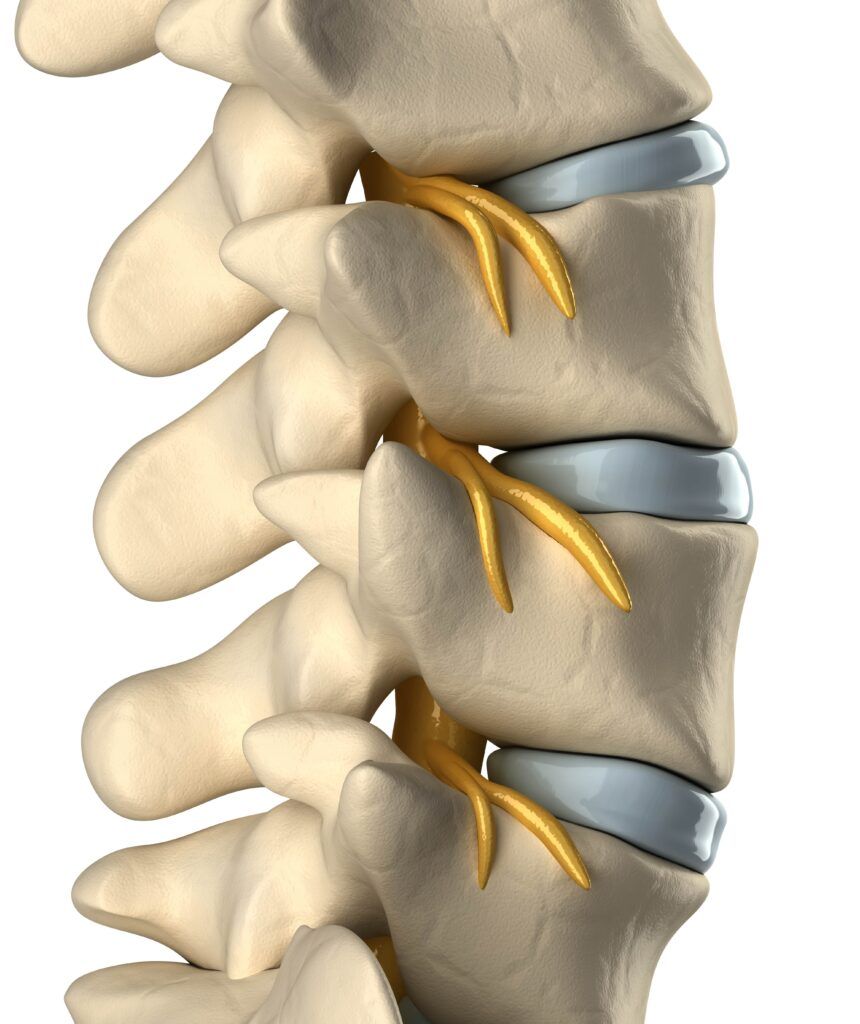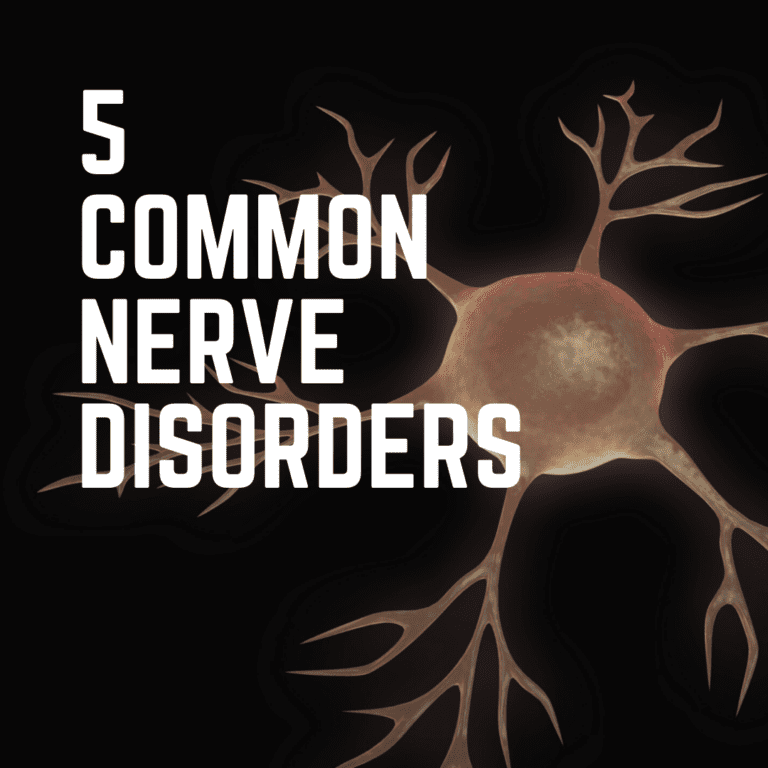We all have nerves that run through our body. These nerves are responsible for sending signals from the brain to different parts of the body and back again. Occasionally, these nerve pathways can become compressed or irritated, leading to a range of issues. Nerve disorders are often misunderstood, but they can be quite debilitating. This blog post will discuss 5 common nerve disorders; how they’re diagnosed and treated; and what you can do to prevent them!
Carpal Tunnel Syndrome
Carpal tunnel syndrome is a compression of the median nerve as it travels through the carpal tunnel in your wrist. The carpal tunnel contains a bundle of tendons, muscles, and ligaments that allow you to flex your fingers. Carpal tunnel syndrome occurs more often in people who do repetitive motions with their wrists for an extended period of time.
Possible symptoms include:
- Pain and tingling in the thumb side of your hand, which may extend into the little finger
- Weakness of grip or difficulty with fine motor skills such as buttoning or dressing
- Numbness and loss of sensation on the palm side of your hands, which can affect how you hold objects or perform other tasks
- In severe cases, it can be difficult to move the wrist
The pain and numbness of carpal tunnel syndrome is often worse at night. This is because certain sleep positions can cause prolonged flexion of the wrist, which further compresses the nerve. In some cases, pain associated with carpal tunnel syndrome can even travel up the arm and into the shoulder.
To diagnose carpal tunnel syndrome, neurologists will perform a nerve conduction study and EMG to assess nerve function. Treatment options for carpal tunnel syndrome generally consist of wrist splints and corticosteroids. Carpal tunnel syndrome usually gets better with time and rest, but in some cases people will need surgery to decompress the area around their median nerve.
Peripheral Neuropathy
Peripheral neuropathy is a condition that affects the peripheral nervous system, which is responsible for sending messages from the brain and spinal cord to the rest of the body. This can include nerves in the hands, arms, legs, and feet. Peripheral neuropathy can be caused by a number of things, including:
- Diabetes
- Alcoholism
- Chemotherapy drugs
- Infections such as HIV/AIDS and Lyme disease
- Toxicity from exposure to heavy metals like lead or mercury
- Certain autoimmune diseases, such as lupus
Peripheral neuropathy can cause a wide range of symptoms, depending on which nerves are being affected. Symptoms may include:
- Numbness or tingling in your hands or feet that can come and go, or be constant
- Painful sensations of prickling, stinging, burning, coldness ,or intense pressure
- Muscle weakness
- Problems with coordination
- Decreased ability to feel pain or temperature
In severe cases, it can be difficult to walk or move the affected area due to severe muscle weakness. In some people with peripheral neuropathy caused by diabetes, their symptoms may not show up for many years and may eventually lead to leg ulcers and other health problems.
To diagnose peripheral neuropathy, doctors will ask patients about their symptoms and perform a physical exam. They may also order tests such as blood work or nerve conduction studies to help determine the cause of the neuropathy. There is no one-size-fits-all treatment for peripheral neuropathy, but common treatments include medications like pain killers or antidepressants, physical therapy, and in some cases, surgery. In some cases, transcutaneous electrical nerve stimulation (TENS) may also be recommended as a non-invasive treatment option.
Ulnar Neuropathy
Ulnar neuropathy is a condition that affects the ulnar nerve, which runs down your arm and into your hand along the back of your elbow joint. Ulnar neuropathy can occur due to many things including trauma to the arm or elbow, compression of the nerve due to swelling or inflammation, Diabetes, thyroid dysfunction, or excessive use of the arms.
A common symptom of ulnar neuropathy is pain and tingling in your little finger and along the inside of your hand. You may also experience numbness and loss of sensation in these areas. In severe cases, ulnar neuropathy can cause difficulty with hand movements and grip strength.
To diagnose ulnar neuropathy, neurologists will perform a physical exam and may order tests such as an EMG or nerve conduction study to assess nerve function. Treatment for ulnar neuropathy generally consists of medications to reduce inflammation and pain, bracing, physical therapy, and, in some cases, surgery.
Cervical & Lumbosacral Radiculopathy
Cervical radiculopathy is a condition that affects the cervical spinal cord, which runs from your brain down to your neck. Cervical radiculopathy can be caused by many things including:

- Herniated disk
- Degenerative disk disease
- Arthritis of the spine
- Injury or trauma to the neck
Cervical radiculopathy can cause a number of symptoms, including:
- Neck pain
- Shoulder pain
- Arm pain
- Hand weakness
- Tingling or numbness in your arms and hands
- Difficulty moving your neck or arms
- Slurred speech or difficulty swallowing
Lumbosacral radiculopathy is a condition that affects the lumbar spinal cord, which runs from your lower back down to your hips. Lumbosacral radiculopathy can be caused by the same things as cervical radiculopathy.
Lumbosacral radiculopathy can cause a number of symptoms, including:
- Lower back pain that may spread into your buttocks and legs
- Numbness or weakness in one leg below the knee
- Difficulty walking on affected leg(s)
- Problems with bladder or bowel control
- Tingling or numbness in your feet and toes
- In severe cases, lumbosacral radiculopathy can cause paralysis or loss of bladder and bowel control.
To diagnose cervical or lumbosacral radiculopathy, doctors will perform a physical exam and may order tests such as an MRI or CT scan to look for damage to the spinal cord. Treatment for cervical or lumbosacral radiculopathy generally consists of medications to reduce inflammation and pain, physical therapy, and in some cases, surgery.
Neuralgias
Neuralgia is a term used by neurologists that describes chronic nerve pain typically caused by irritation or damage to the nerve. Neuralgias can affect any nerve in the body, but are most commonly seen in the face and head. There are different types of neuralgias, including:
- Trigeminal neuralgia: trigeminal nerve is most commonly affected in this type of neuralgia, which causes pain along the side of your face and jaw. Trigeminal neuralgia can be triggered by things like brushing teeth, talking, chewing food or even being exposed to temperature changes.
- Occipital Neuralgia: Occipital neuralgia is a very common condition that causes severe headaches for many people. The pain often starts in the back of the head and shoots forward to the front. Patients often complain of pain around or behind the eyes. When pressing around the nerve at the back of the head people get a severe pain.
- Postherpetic Neuralgia: This type of neuralgia occurs as a complication of shingles and may be anywhere on the body. Shingles is a viral infection characterized by a painful rash and blisters. Neuralgia can occur wherever the outbreak of shingles was. The pain can be mild or severe and persistent or intermittent.
Neuralgia is a chronic condition that can be difficult to treat. Common treatments include medications like pain killers or antidepressants, physical therapy, and in some cases, surgery. In some cases, transcutaneous electrical nerve stimulation (TENS) may also be recommended as a non-invasive treatment option.
In Conclusion
Nerve disorders can be difficult to diagnose and treat. Some can be even more difficult than others. Seeing a neurologist is the best way to get an accurate diagnosis and start treatment. There are a number of treatments available for most nerve disorders, so there is no need to suffer from the pain and discomfort they can cause.

Dr. Kashouty, a diplomate of the American Board of Psychiatry and Neurology (ABPN), practices general neurology with fellowship trained specialization in clinical neurophysiology. Dr. Kashouty finds the form and function of the nerves and muscles the most interesting part of neurology, which is what led him to specialize in neurophysiology with more emphasis on neuromuscular conditions. He treats all neurological diseases, but his main focus is to treat and manage headaches, movement disorders and neuromuscular diseases.




